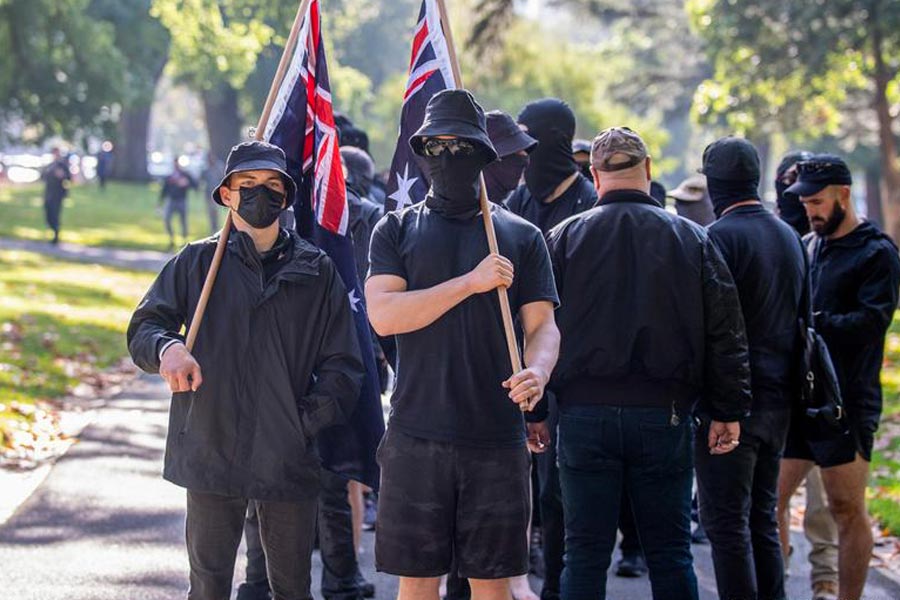Australia's federal government said on Thursday that it would introduce laws to the parliament next week banning public displays and sales of Nazi hate symbols, citing a rise in far-right activities at home.
The bill will ban the Nazi swastika, probably the most recognizable symbol used by the Nazis, and the insignia of the Schutstaffel (SS), the Nazi party's paramilitary wing that became instrumental in running German concentration and extermination camps during the Holocaust, from being used on flags or armbands or to be printed on clothing.
"We've seen, very sadly, a rise in people displaying these vile symbols, which are symbols that have no place in Australia," Federal Attorney-General Mark Dreyfus told Channel Seven television, one of several interviews on the issue he gave on Thursday.
Recent far-right demonstrations and clashes shocked Australia
The decision comes after recent unrest that shocked the country and made international headlines.
"Regrettably, we have seen violence associated with some of the public events that these people have put on," Dreyfus said.
The most recent notable event was in Melbourne on May 13.
A neo-Nazi group held an anti-immigration rally at the state parliament for Victoria, marching through the city dressed in black, with some obscuring their faces but others smiling as they walked past cameras.
The far-right demonstrators also came to blows with anti-fascist counter-protesters.
Many carried Australian flags and they were often seen performing so-called "Hitler salutes" as they marched.
In March, again in Melbourne, neo-Nazis took part in an anti-trans rights rally and performed a Nazi salute outside the state parliament building, also coming to blows with rival protesters.
Australian states working on similar plans
Dreyfus said the Hitler salute was also an issue the government was considering, but he said that Australia's federal government was not the right organ to deal with that.
"State governments have got more responsibility for what you might call street offenses," he said. "And our law goes to public display and includes online ... the salute we've left for the states."
He said the whole plan was part of a coordinated effort with Australia's states and territories, all of which had either passed laws or announced plans to outlaw Nazi symbols. He said the federal rules would complement the state rules and ensure there were "no loopholes" to exploit.
One core component of the planned federal law, as well as the display of such symbols, was seeking to definitively outlaw the for-profit sale of any clothing, items or memorabilia carrying them, Dreyfus said.
Offenders could expose themselves to up to a year in jail, he said, adding that exceptions would apply, including for artistic and academic use or for religious use — the swastika symbol had significance in Hinduism, Jainism and Buddhism long before the Nazis co-opted it.
Where else are there bans on Nazi symbols?
Germany and Austria's laws restricting the sale and display of many Nazi-era symbols in most contexts are quite well known internationally and were as much the brainchild of the Allied victors of World War II as the soon-to-be West German postwar authorities.
But comparable restrictions actually exist, if often less extensive, in an array of countries around the world, particularly Europe, including but not limited to France, Latvia, Ukraine, Russia, Poland, Lithuania, Hungary, and even Brazil. Several of those countries restrict Nazi and Soviet symbols similarly.
However, Australia is in the process of becoming the first English-speaking country to introduce such laws.











